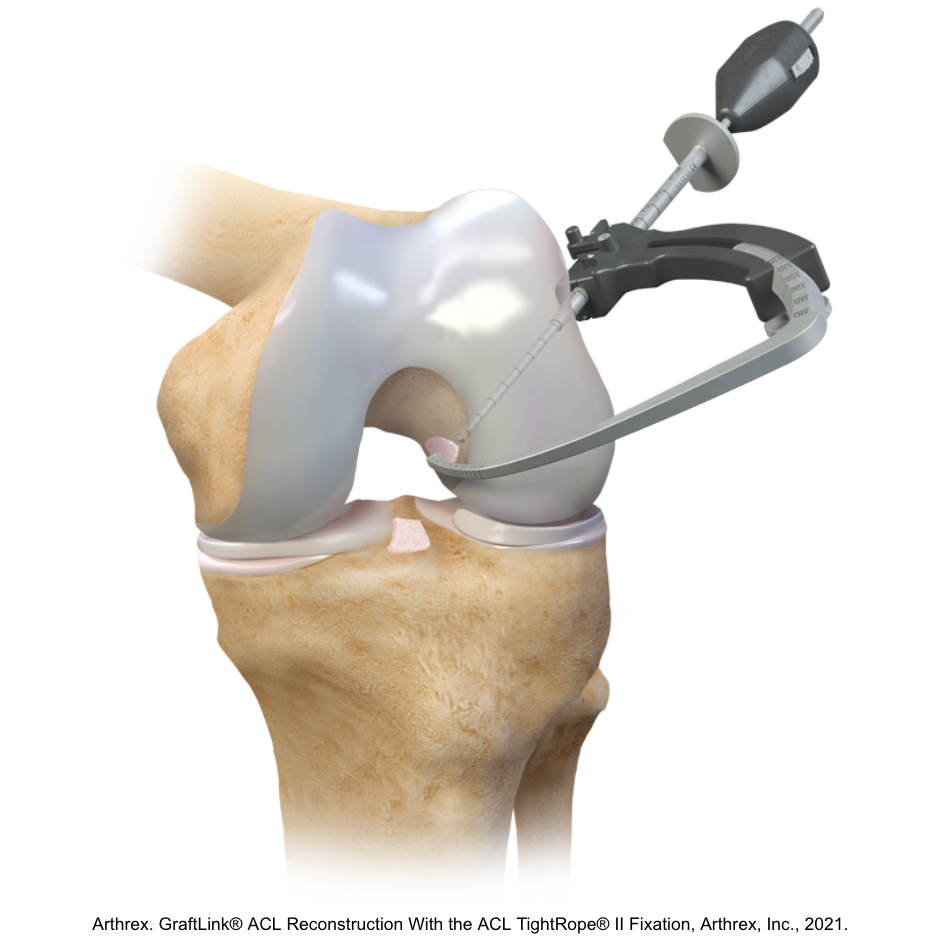Stabilizing drill guides used in ACL reconstruction to improve surgical efficiency
Team: AnchorPoint
Program:
Biomedical Engineering
Project Description:
nterior cruciate ligament (ACL) tears are common injuries among the general population, often requiring surgical reconstruction to restore knee stability and function. Despite being a low-risk procedure, graft failure can occur, resulting in patient dissatisfaction and the need for revision surgery. The procedure is performed arthroscopically and a mechanical guide is used to determine the position of drill holes for femoral and tibial bone tunnels, where the ends of a ligament graft will be attached. However, the instruments may become unstable during femoral tunnel placement as there is no mechanism to prevent unintentional movement of the guide. The surgeon’s hand acts as the sole support for the guide, making tunnel placement prone to human error. As such, there is a clinical need to prevent unwanted movement of the guide tip for femoral tunnel placement during ACL reconstruction surgery in order to reduce guide instability and risk of graft misplacement. Therefore, we developed a device that acts as an extension to existing drill guides and anchors into the bone to improve their stability once placed inside the knee. The device’s key features include customizability, single-handed deployment, and seamless integration into the current surgical workflow while causing minimal damage to nearby soft tissues. Initial verification testing confirmed that positional variability of the guide tip was significantly reduced upon deployment of the device, and feedback from orthopedic surgeons validates the potential of the device to minimize wasted time in the workflow and thus to improve the efficiency of the ACL reconstruction procedure.
Team Members
-
[foreach 357]
-
[if 397 not_equal=””][/if 397][395]
[/foreach 357]
Project Mentors, Sponsors, and Partners
Course Faculty
-
[foreach 429]
-
[if 433 not_equal=””][/if 433][431]
[/foreach 429]
